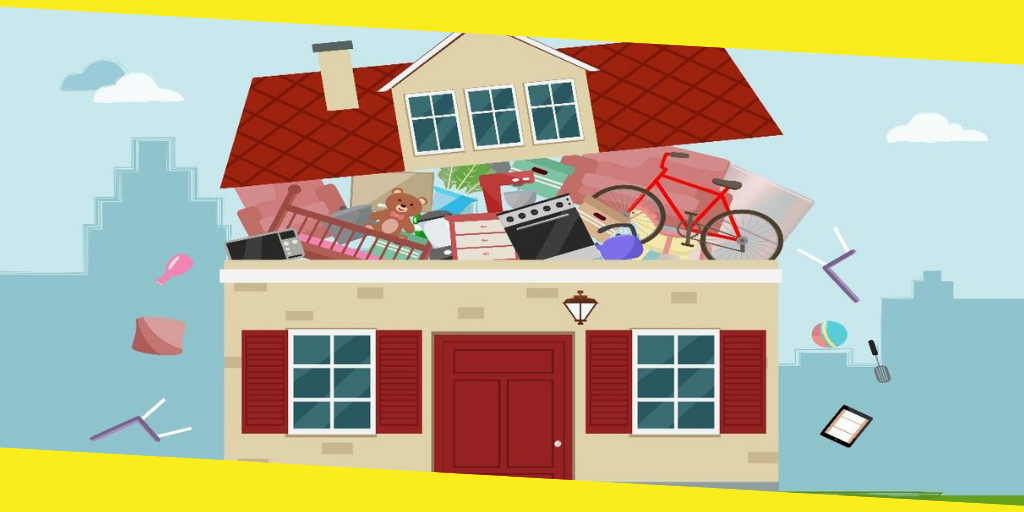Balancing Lifestyle Inflation and Your Financial Life
This post was last updated on December 5th, 2018

(Image Source: Shutterstock)
In India, having money solves all your problems. More the money, more can you explore the worldly indulgences through your lifestyle choices. Usually, when an individual moves into a more profitable position at work, their monthly expenses rise correspondingly. For example, you might have been living in a comfortable apartment for say, Rs. 8,000 during the initial job years. However, after a couple of years and job promotions, and you move into an apartment that costs Rs. 15,000, almost twice the previous rent.
The previous apartment might have had everything you needed: great location, ample space, friendly neighbours. However, you move into this new accommodation, in an exclusive, plush locality – not because you had to, but because you can now afford to. This phenomenon is what we know as lifestyle inflation, and though it may not seem apparent at first, lifestyle inflation ends up limiting your ability to build wealth. Therefore, it is essential that you balance your finances with the lifestyle inflation.
Why Does Lifestyle Inflation happen?
One of the major contributing factor to lifestyle inflation is the sense of entitlement. You have worked hard to earn more money, and now you feel justified in splurging it on materialistic indulgences. While this is not always the wrong thing to do, rewarding yourself too much for the hard work that you do can prove detrimental to your financial stability now and in the future.
Also, it is not uncommon for us to feel like we need to keep up with our friends and business associates’ lifestyle choices. For example, if your colleagues drive a BMW to the office, you might feel compelled to purchase one as well, even if your Maruti Ciaz gets the job done just fine.
Overall, lifestyle inflation isn’t just about homes and cars. With more money to spend, you can also end up splurging more than you should on dining out, vacations, entertainment, private school tuition and clothes. In keeping up with the appearance of being wealthy; however, keep in mind that you don’t end up servicing an excess of debt in the years to come.
Spending More Makes Sense, But Only Sometimes
There are times when we cannot do without increasing our expenditures in certain areas. You may feel the necessity to upgrade your wardrobe; for example, following a recent promotion at work. Alternatively, with the birth of your child, you may have to shift into a new house with an extra bedroom.
Over time, your situation will change – both personally and professionally, as your family and work obligations evolve. Subsequently, you would have to spend more on things that you previously overlooked or avoided altogether.
Set Your Financial Goals
Most of us would never think twice before spending more than we need to if we have more money and are not working towards any goal. That’s why it becomes crucial that you select a variety of long-term and short-term goals and put aside the excess money into plans that would help you reach them.
Your goals can be anything. Do you want to retire early? Alternatively, maybe you wish to put your child through a reputable college without going through the ordeal of a student loan debt. Whatever your goal is, it would help you motivate you to stop splurging your hard-earned money into things you don’t need.
Having a retirement corpus, for example, is a crucial long-term goal. Hence, you can get the early bird edge by investing early in a Best ULIP plans and build up a sizeable corpus over the policy period. Many insurers like Future Generali allow you to invest in ULIPs as per your risk appetite. Meaning there are different types of ULIPs funds for each type of investor. You can invest in equity funds, debt funds, liquid funds and balanced funds as per your needs and goals.
Balancing Lifestyle Inflation
While you cannot avoid lifestyle inflation altogether, you must remember that every expenditure decision you make today would affect your financial situation tomorrow. To put things into perspective, that Rs. 35,000 handbag you just bought could be coming straight out of your child’s higher education nest egg. Even if you could spend that much on a bag, should you?
Even if you have received a substantial pay increase, it’s entirely possible for you to end up living from one paycheck to another. That’s because your spending increases as lifestyle inflation slowly become a part of your lifestyle, and as a result, you purchase more things than you require, to maintain your new standard of living.
Therefore, you must keep your wants and needs in mind and making honest, realistic assessments about whether your next purchase is a need or a desire. This way, you can avoid excessive lifestyle inflation and balance your financial life.
Another way to balance lifestyle inflation is to save and invest a significant percentage of your increased earnings into a ULIP plan. For example, if you now earn Rs. 10,000 extra each month, you can plan on investing Rs. 7500 as premium into the ULIP money. That way, you can build wealth over time instead of wasting it on making unnecessary purchases.
When we talk about building tangible, sustainable wealth, earning more money is only one piece of the riddle. If you want to leverage your increased earnings to get ahead financially, you must strive to part with the type of lifestyle inflation and unnecessary splurges that don’t add any value to your life.
The best way to balance lifestyle inflation is to create life goals and invest towards them proactively. Don’t just wait until you start earning more and then try to figure out what you can do with it. Instead, create an ongoing plan to handle all raises and windfalls as they come.
Recommended For You
5 Things That Make a Charity Effective
Most Inside
Most Inside offers high-quality recommendations and valuable updates to enhance all aspects of your life, providing premium guidance and enriching experiences.




